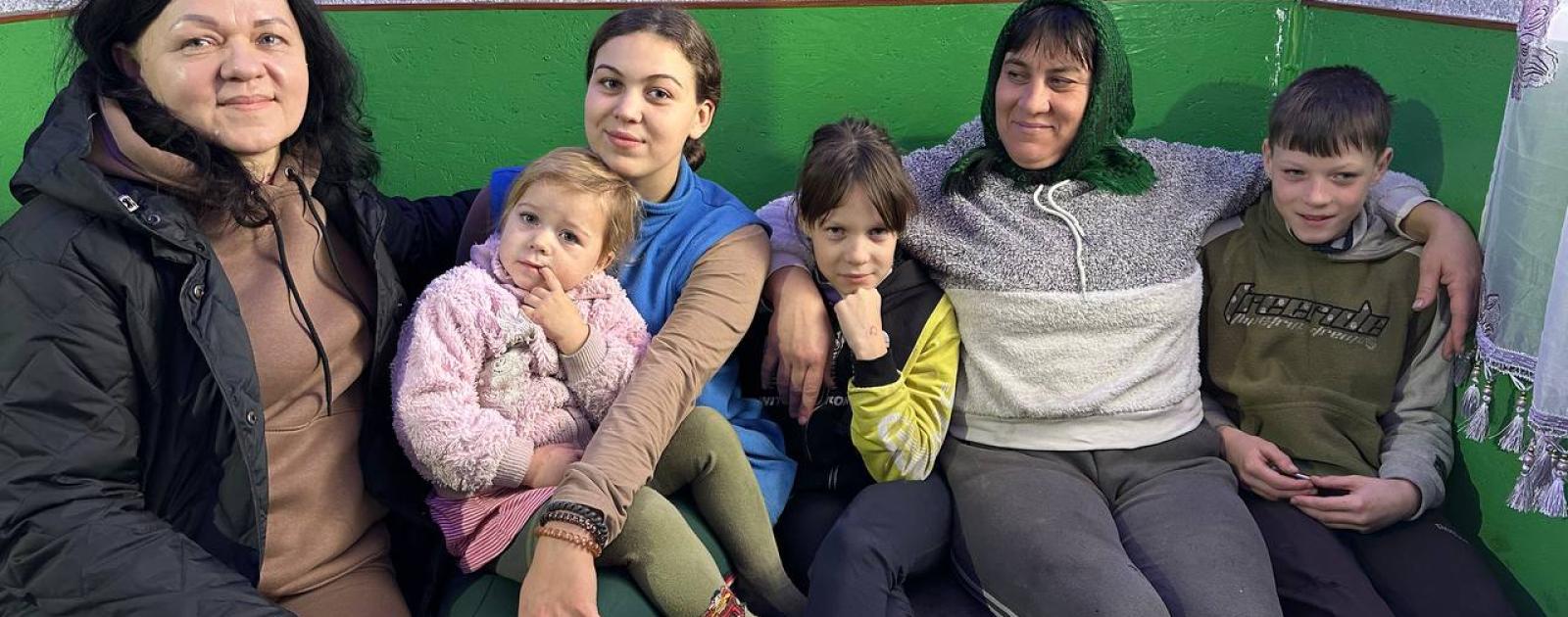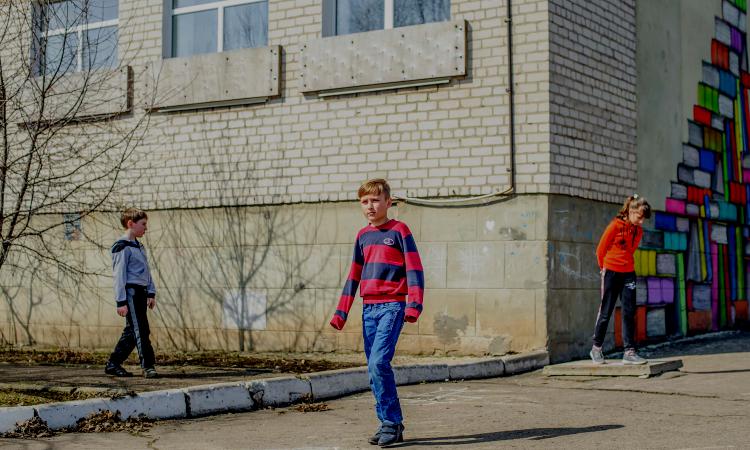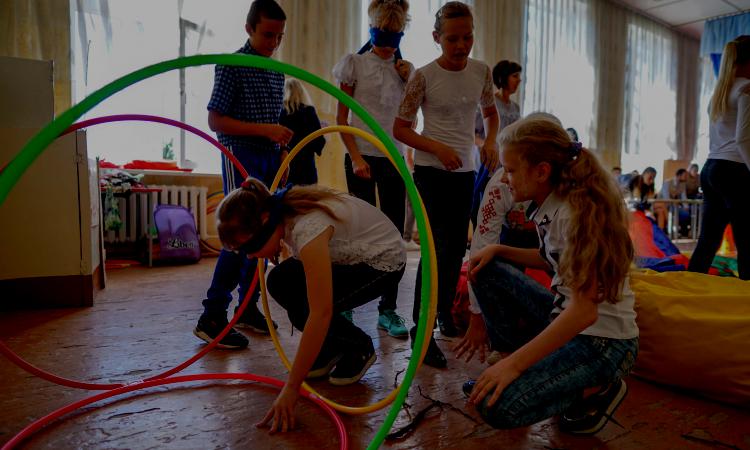
"I help people at the call of my heart," says Alla Chubai, a social work specialist, about her work. It was her love for people that brought her to this field. Before the full-scale invasion, she was a food preparation technologist. She had her own coffee shop, then worked at a private school, and never even thought about psychology and social work.
The war turned everything upside down. When people from the frontline regions began to come to Khmelnytskyi in large numbers to seek shelter, Alla and her friends took the displaced people into their homes. They helped them with food, clothes and other necessities.
"Communicating closely with people who have lost everything, I realized that they need more qualified help. And it was in my power to do it. That's how I became a student majoring in psychology," she says.
Since March of this year, Alla Chubai and her colleagues at the Rehabilitation and Recovery Center, with the financial support of Terre des hommes and Swiss Solidarity, have been implementing the ProAction project in the Khmelnytsky community. Their task is to provide social and psychological support to vulnerable populations: internally displaced persons and families in difficult life circumstances.
"The IDPs were the very people we had been helping since the beginning of the war, and we hired them. They came with only documents at best and needed everything. And we had to find them everything they needed for a normal life. In addition to housing, work, and humanitarian aid, they needed psychological help, social adaptation, information, and counseling," the specialist explains.
According to Alla, before starting the project, she had no idea how many people actually needed social support. For her, it all started with a plan of 50 cases made in advance.
"I thought: "How is it possible to help so many people?" But in the end, the plan was exceeded. I would like to say that we have done a great job, but there are still many people who need our support," Alla emphasizes.
The project has given her a lot of new contacts as a specialist. Thanks to them, she learned about the people of Khmelnytskyi who needed comprehensive social support. That's how fate brought Alla together with the large Yatsiuk family from Berezhanka.
"It was a challenging and at the same time interesting case, and I am amazed by the results," she admits.
12 children and parents with alcohol problems. A small house in disrepair, no running water, no toilet, dirt and mess - that's what Alla faced at the start.
"I had never seen anything like this before. But when I started to communicate more with this family, I realized that they are not bad people. They love their children, and the children love them. It was evident in everything: in their eyes, in their actions. I realized that people were drowning and needed to be saved. I also realized that my mother was simply untrained. She didn't have a good example, her mother also drinks, and because of that, she couldn't teach her daughter the skills of positive parenting," the specialist recalls.
So they started learning almost from scratch. Alla did everything together with Tetyana (the mother of the family's name): she cleaned, cooked, explained how to manage finances, set goals, and unite the family.
Now they have repaired the house, installed a water supply system, bought a washing machine, dug a cesspool, and started a farm. They followed Alla's advice, and now the older boys and girls have separate rooms.
"We spent all the money on the children," says Tetiana Yatsiuk. - "To improve their living conditions. "We want to build an extension to the house so that there is another room, shower, and toilet. We dream about it."
Valentyna Mysyura, the principal of Berezhany Gymnasium, knows the Yatsiuks well because all of their children attend the school. She remembers different situations, often not very pleasant. But now, she says, the community has noticed positive changes:
"Recently, the family has improved: they don't drink alcohol, they try to do something for the house, for the kids. They bought new furniture, clothes, and dishes. They started planting a vegetable garden and have their own vegetables. They have poultry, and before they had no chicken in the yard. The children are well-groomed and well-fed. This project has had a good impact on them. They see the support of the organization. And I hope that this will be a lesson for their children."
In fact, positive parenting skills are knowledge that is relevant not only in difficult cases like the Yatsiuks'. Often, even more well-adjusted people need expert advice. To this end, Terre des hommes, as part of the ProAction project, launched positive parenting training.
How do you avoid emotional burnout and traumatize children with your own memories and experiences of your childhood? How to raise an emotionally stable and healthy personality? How to be the best friend for your child? Maria Odarchenko, a psychologist of the mobile team of the NGO "Center for Rehabilitation and Recovery," and Alla Chubay, a social work specialist, talk about these and other issues at meetings with parents.
"There is a lot of informative material for young parents," teacher Svitlana Kozir shares her impressions after one of these meetings. - "As a mother of adult children, I regret that I did not have the opportunity to hear such information earlier. Perhaps I would have done something differently in raising my children. Therefore, such work should definitely be carried out."
Alla Chubai, in turn, admits that she has learned a lot from her work in the project. After all, each case she worked with is special. You can write a novel about each family.
"If we take IDPs," the expert emphasizes, "I probably wouldn't want to be in their situation. Thanks to these cases, I learned not to get attached to property, because at one point - no one is safe from this - we can lose everything."
And the most important thing she realized is that you have to start any business with faith, and the result will not be long in coming.
The project "ProAction - Improving Access to Housing, Education and Quality Social Services for Children and Families in Ukraine" is implemented by five partner organizations - Terre des hommes Foundation in Ukraine, NGO "Zahid Shans", NGO "Posmishka UA", NGO "World in Colors", and NGO "Rehabilitation and Recovery Center", with funding from the Swiss Solidarity Foundation.

